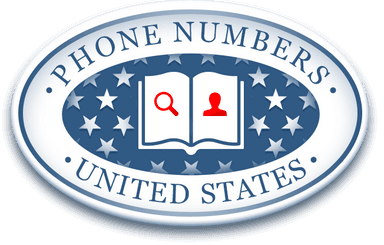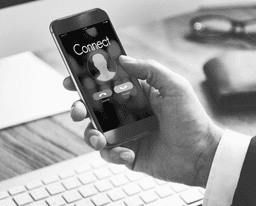How to Contact Facebook Customer Service

Facebook is a corporation that provides online social networking services. With over one billion members, as of 2012, Facebook is the world's largest social network. About 600 million people use Facebook every day.
While it is tough to get in touch with Facebook directly, it possible. You can always call its customer service line or send queries to email addresses. Both methods have their pros and cons, but replies might take a long time and aren't guaranteed.
How Do I Contact Facebook Customer Service via Phone
Contacting Facebook by phone is complicated. Facebook's toll-free phone numbers are (650) 543-4800 and (650) 308-7300, but calling these numbers is usually a dead end, with only a few people eventually reaching a human agent.
Pros
- It is the cheapest way to get help
Cons
- It is almost impossible to reach a human agent
- It is a waste of time as users can also use the other available options without first calling
How Do I Contact Facebook Customer Service via Live Chat
Entrepreneurs who use Facebook Business have access to the live chat option. Go to the Facebook support center and click the Chat icon at the bottom of the page. Type your question in the text box that appears. The agent will be notified that you are ready to speak when you hit the "Send" button and respond as soon as possible.
Pros
- Personalized help
- It is possible to save the conversation for future refence
Cons
- There is no guarantee that you will receive a response promptly
- This feature is only available to Facebook Business customers
- It is meant to resolve complaints from users who run Facebook ads
How Do I Contact Facebook Customer Service via Twitter
Facebook has a Twitter account @Facebook, which is excellent if you have one as well. Companies, on the whole, respond quickly to customer requests expressed via Twitter because they are aware that the conversation is open to the public. But it would be best if you also generated lots of support from other users to get answered.
Pros
- Personalized help
- Screenshots of private talks can be saved for later use
Cons
- Tiered support is not available if the agent is unable to fix the issue
- Scammers target customers who publish public complaints
The official Facebook customer service handle is marked with a blue tick, indicating that the account is legitimate. Scammers who call you claiming to be agents assigned to your complaint should be disregarded. There is no blue verified tick on these fake Twitter accounts, which have clever nicknames. It's also worth noting that a Facebook customer service representative will never contact a client via their personal account.
How Do I Contact Facebook Customer Service via Email
Facebook's basic support email is support@fb.com. It is used to contact them for general issues and complaints. If you have any questions about the recovery of deactivated accounts or difficulties connected to the recovery of hacked accounts, resetting the password, getting a code to reset the password, or any other related issue, send an email to disabled@fb.com. Also, if you want to appeal the suspension of your account, contact appeals@fb.com.
Pros
- Screenshots of private talks can be saved for later use
- Users have more time to formulate their grievances
Cons
- The response times for chat are frequently slower than for the other choices
- Email queries have been reported as being ignored
- The replies had been composed ahead of time
Tips for Contacting Facebook Customer Service
As you may have seen, despite the high wait time, calling Facebook customer service is arguably the only viable choice for getting your problem resolved. To get the best out of your experience, keep the following tips in mind:
Getting Ready to Call
Yes, you will have to wait before speaking with an agent. However, you have no way of knowing when an agent will be available to talk to you. So, before contacting, gather your order information and jot down a summary of your complaint on a notepad. If you fail to record the call, the notepad will assist you in taking down the agent's reaction and instructions. During the introduction, please note the agent's name and use it frequently when addressing them. This personalizes the call and aids you in future contact if the problem is not handled.
During the Conversation
Remember that the agent is not directly responsible for the problem, but they will do everything they can to assist you in resolving it. Keep your cool through the planned responses. If the agent cannot resolve your problem, ask to be referred to a supervisor.
Take Notes
Get a notepad and jot down the agent's response. Note the resolution to your problem or the time for call back. If you can record the phone call, that would be wonderful.
Facebook Customer Service Scams
Facebook customer service scams appears in many forms, from phishing links to catfishing. Scammers use various tactics to steal money or trick a user into revealing sensitive, personal information.
Fake Links
Malware may be delivered via fake news, free offers, and other techniques. These scams take advantage of articles, news, or offers that attract your interest. The goal is to get you to click on a malicious link or share anything that spreads malware. Here are a few examples:
- Direct Messages including links or attempting to get you to view anything.
- Links leading to a new log-in request for Facebook/Email Provider, which is used to steal your account information.
- Surveys - Some Facebook surveys are designed to collect information about users to commit identity theft, account hijacking, or spear phishing (crafted attacks).
Phishing Scams
Text messages or email campaigns are used in phishing scams to generate a sense of urgency, fear, or interest among Facebook users. After these emotions have been planted, victims are easily duped into disclosing personal information, opening infected attachments, or clicking on harmful websites.
For example, a Facebook user may receive a notice about a rules violation that requires immediate action. The message will provide a link to a fake Facebook page. On that page, the user will be required to give current credentials and a password change. When the unsuspecting customer uploads the information, it is sent to the fraudster, who now has access to the account.
Fake Facebook Accounts (Catfishing)
Some phony accounts are set up and run to get you to trust them. They offer or demand money in a short amount of time. In recent years, there has been an increase in the use of this strategy. A second Facebook Friend Request is a sign of a cloned account; if you're already linked on Facebook, you shouldn't get a second Friend Request. "I'm in jail in a distant nation. Can you send money?" is an old email scam.
How to Avoid Facebook Scams
- Don’t rush. Scammers want their victims to take action before thinking about it. Facebook will never request personal information from you.
- Avoid strange communications. If you haven't confirmed the sender's identity, don't click a links or send money to them.
- Only open a secure website (look for HTTPS:// and a security lock icon in the URL bar), especially if you need to submit critical information online.
Does Facebook Customer Service Do Callbacks?
No, Facebook customer service does not offer callbacks. If you receive an unsolicited call from someone posing as a Facebook employee, hang up. It's a swindler. If you're not sure who the caller is, use a reverse phone search to find out.
Top 3 Reasons to Contact Facebook Customer Service
Here are three common reasons people contact Facebook customer service:
Account Hack
If your account has been compromised, customer service can help you resolve the issue. If you're having trouble communicating with your friends on Facebook, customer service may be able to help.
Locked Out of Facebook Marketplace
You want to advertise your new wares on the Facebook marketplace, but oops! You are restricted; you can't log in. Sometimes it is a technical error that could be resolved by contacting customer care.
Report Cases of Blackmail
Facebook users also try to contact the customer support unit to report cases of blackmail, sexual assaults, scam, racism, and all sorts of vices. This helps the organization to blacklist and remove people found guilty of these offenses.


